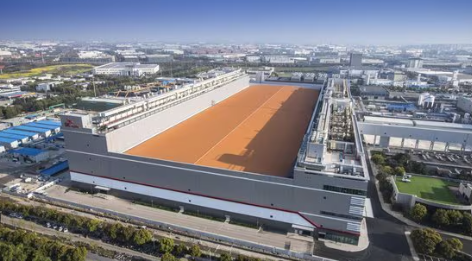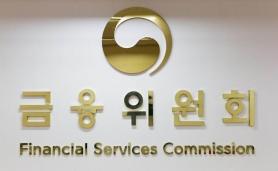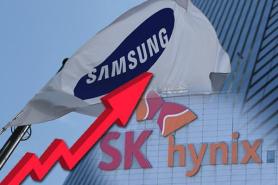
A designation from Washington allowed their plants to import the American equipment essential for advanced semiconductor production without the usual licensing hurdles, insulating them from the turbulence of U.S.-China trade disputes.
That privilege is about to vanish.
On Saturday, the Commerce Department said it would revoke so-called Validated End User, or VEU, status for the Chinese subsidiaries of Samsung, SK hynix and Intel, requiring them to obtain individual permits for every shipment of U.S. machinery starting early next year.
The decision, set to be published in the Federal Register on Sept. 2, will take effect 120 days later.
Its implications are sweeping. Samsung’s Xian NAND flash factory and SK hynix’s DRAM and NAND plants in Wuxi and Dalian account for a large share of global memory chip output.
Industry officials fear the new licensing regime could stall technology upgrades, deter fresh investment and inject uncertainty into an already fragile supply chain.
“The VEU system gave stability for equipment imports,” one industry executive said. “Without it, even routine upgrades will be difficult.” The Commerce Department estimates the shift will generate about 1,000 additional export license applications each year.
Washington has signaled it will continue to approve equipment necessary to sustain current production, a move that may prevent immediate shutdowns.
But the broader message is clear: The United States is tightening oversight of how foreign companies operate inside China’s semiconductor sector.
The timing raised eyebrows in Seoul. The announcement came just days after President Trump met South Korean President Lee Jae Myung in Washington, a summit that touched on trade, economic security and technology policy but ended without concrete agreements.
Some analysts see the revocation as a pointed reminder that America expects allies to align with its strategy to curtail China’s access to advanced chipmaking.
South Korea’s Ministry of Trade, Industry and Energy said it would continue talks with Washington to reduce the fallout.
“Stable operations at Korean semiconductor facilities in China are crucial for global supply chain stability,” a ministry spokesman said.
Samsung and SK hynix face a delicate balancing act. Both companies rely heavily on Chinese facilities for production, while also depending on American technology to run them.
The United States, meanwhile, is pursuing a dual strategy: easing some trade tensions with Beijing — extending a tariff cease-fire and partially loosening semiconductor export curbs — while quietly erecting new barriers to prevent what it calls the leakage of critical technologies.
Copyright ⓒ Aju Press All rights reserved.




